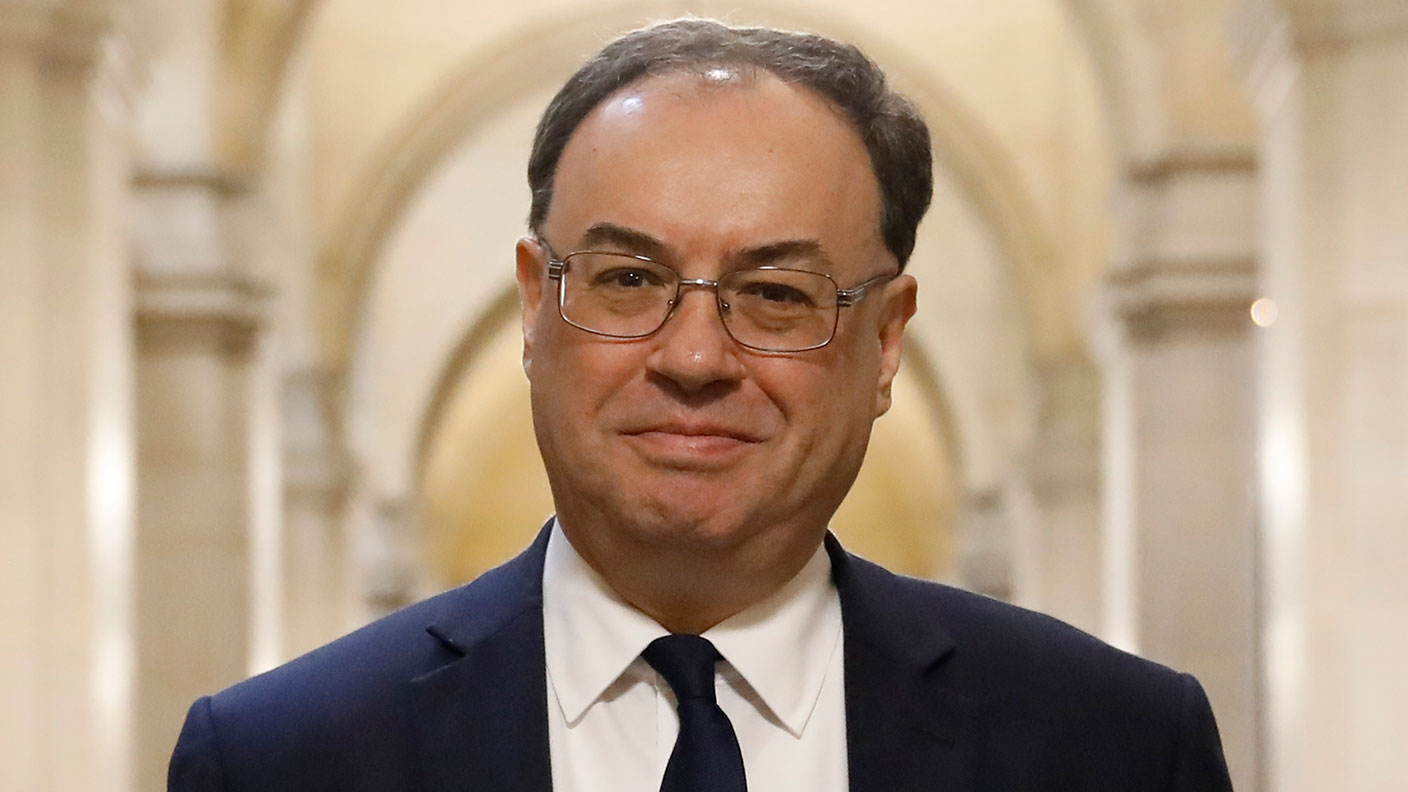The Bank of England chucks the kitchen sink at coronavirus
The Bank of England has cut the UK’s key interest rate to just 0.1%, making it very clear that it really will do “whatever it takes”.


Get the latest financial news, insights and expert analysis from our award-winning MoneyWeek team, to help you understand what really matters when it comes to your finances.
You are now subscribed
Your newsletter sign-up was successful
Want to add more newsletters?

Twice daily
MoneyWeek
Get the latest financial news, insights and expert analysis from our award-winning MoneyWeek team, to help you understand what really matters when it comes to your finances.

Four times a week
Look After My Bills
Sign up to our free money-saving newsletter, filled with the latest news and expert advice to help you find the best tips and deals for managing your bills. Start saving today!
If you’re a saver, look away now. The Bank of England has just cut the UK’s key interest rate to 0.1%. OK, you’re probably not losing much more of the vast amount of interest you are not currently being paid on your savings.
Earlier this morning, the Bank’s key rate was only at 0.25%. So this part of the Bank’s latest emergency aid package was just “the showbiz”. The showbiz is an important part of being a central banker. Central banking is as much about communicating intent as acting.
Cutting the base rate to 0.1% from 0.25% does very little in practical terms. But as a statement of intent, it’s pretty clear. You’re making it obvious that you really will do “whatever it takes”. Thing is, you need to back the showbiz up with some genuine action. And the Bank has most definitely done that.
MoneyWeek
Subscribe to MoneyWeek today and get your first six magazine issues absolutely FREE

Sign up to Money Morning
Don't miss the latest investment and personal finances news, market analysis, plus money-saving tips with our free twice-daily newsletter
Don't miss the latest investment and personal finances news, market analysis, plus money-saving tips with our free twice-daily newsletter
Until now, the Bank of England was maintaining quantitative easing (ie, buying bonds with printed money) at an overall level of £445bn. It hasn’t been increasing the size of its balance sheet, but it hadn’t been shrinking it either. So when old bonds mature, it had been rolling them over (ie, buying fresh ones to replace them).
But now it’s going to be ploughing even more money into the market. The Bank will now print an extra £200bn, increasing the size of its balance sheet to £645bn. With that added money it will buy sterling-denominated investment grade corporate bonds, and government bonds.
What’ll that do? It gives the UK some breathing space. As we discussed in Money Morning this morning, monetary conditions around the world have been tightening because of a desperate demand for dollars. This move takes any pressure off at this end.
And interestingly, currency markets don’t seem to mind – normally you’d expect this sort of action to hit the strength of the pound, but in fact the pound has rallied somewhat.
In all, it’s clear that the Bank and the government are as one on this. They really will do whatever it takes. We may well have to deal with the fall-out from that after this crisis is over but we can expect a lot more action in the days and weeks ahead.
Here’s tomorrow’s magazine cover by the way…

Get the latest financial news, insights and expert analysis from our award-winning MoneyWeek team, to help you understand what really matters when it comes to your finances.

-
 Early signs of the AI apocalypse?
Early signs of the AI apocalypse?Uncertainty is rife as investors question what the impact of AI will be.
-
 Reach for the stars to boost Britain's space industry
Reach for the stars to boost Britain's space industryopinion We can’t afford to neglect Britain's space industry. Unfortunately, the government is taking completely the wrong approach, says Matthew Lynn
-
 UK wages grow at a record pace
UK wages grow at a record paceThe latest UK wages data will add pressure on the BoE to push interest rates even higher.
-
 Trapped in a time of zombie government
Trapped in a time of zombie governmentIt’s not just companies that are eking out an existence, says Max King. The state is in the twilight zone too.
-
 America is in deep denial over debt
America is in deep denial over debtThe downgrade in America’s credit rating was much criticised by the US government, says Alex Rankine. But was it a long time coming?
-
 UK economy avoids stagnation with surprise growth
UK economy avoids stagnation with surprise growthGross domestic product increased by 0.2% in the second quarter and by 0.5% in June
-
 Bank of England raises interest rates to 5.25%
Bank of England raises interest rates to 5.25%The Bank has hiked rates from 5% to 5.25%, marking the 14th increase in a row. We explain what it means for savers and homeowners - and whether more rate rises are on the horizon
-
 UK inflation remains at 8.7% ‒ what it means for your money
UK inflation remains at 8.7% ‒ what it means for your moneyInflation was unmoved at 8.7% in the 12 months to May. What does this ‘sticky’ rate of inflation mean for your money?
-
 Would a food price cap actually work?
Would a food price cap actually work?Analysis The government is discussing plans to cap the prices of essentials. But could this intervention do more harm than good?
-
 Is my pay keeping up with inflation?
Is my pay keeping up with inflation?Analysis High inflation means take home pay is being eroded in real terms. An online calculator reveals the pay rise you need to match the rising cost of living - and how much worse off you are without it.